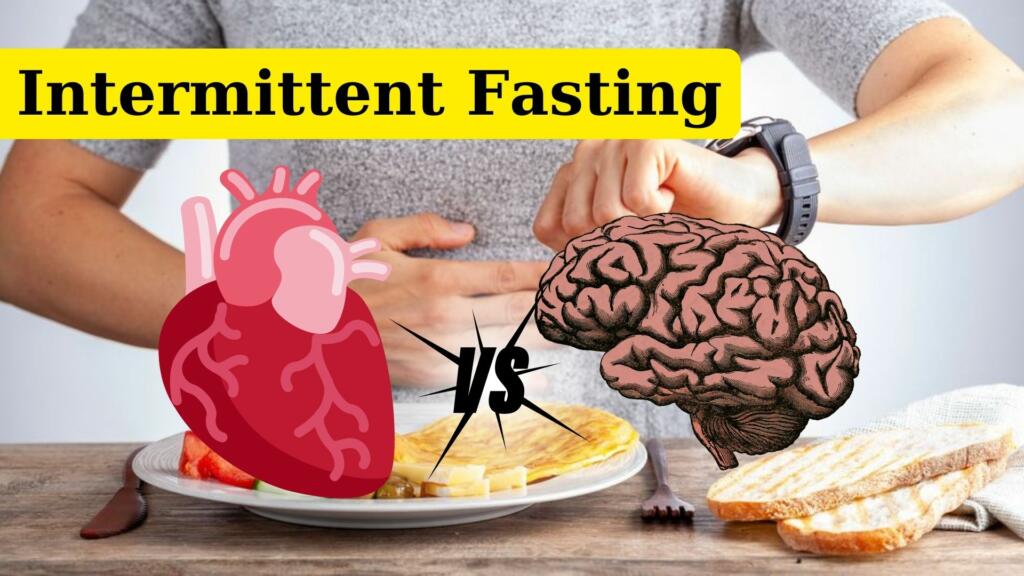In recent years, intermittent fasting has emerged as a popular dietary strategy for weight loss and purported health benefits. Advocates of intermittent fasting often highlight its potential positive effects on brain health, citing research suggesting improvements in cognitive function and neuroprotection. However, a recent study has raised concerns about the potential adverse impact of intermittent fasting on cardiovascular health, indicating a higher risk of death from heart disease among individuals practicing time-restricted eating patterns. This article aims to provide a comprehensive analysis of the conflicting evidence surrounding intermittent fasting, examining its effects on both cardiovascular health and brain function.
Understanding Intermittent Fasting
Intermittent fasting involves cycling between periods of eating and fasting, typically with a predetermined eating window ranging from a few hours to an entire day. Common approaches to intermittent fasting include the 16/8 method, which involves fasting for 16 hours and eating within an 8-hour window, and alternate-day fasting, where individuals fast every other day.
The Cardiovascular Health Debate
The recent study conducted by researchers from Shanghai Jiao Tong University School of Medicine has garnered significant attention for its findings linking intermittent fasting to an increased risk of death from cardiovascular disease. The study, which analyzed data from over 20,000 adults participating in the US National Health and Nutrition Examination Survey, reported a 91% higher risk of cardiovascular disease mortality among individuals practicing time-restricted eating compared to those with a more extended eating window.
Critics of the study point out several limitations, including reliance on self-reported dietary information, potential inaccuracies in data collection, and the lack of consideration for confounding lifestyle factors such as smoking and exercise. Despite these limitations, the study raises important questions about the potential cardiovascular consequences of intermittent fasting.
Also Read: Aware Women: From Social to “Cervical” Cancer
Exploring the Brain Health Benefits
While concerns regarding cardiovascular health have surfaced, intermittent fasting continues to be lauded for its potential benefits to brain health. Animal studies have demonstrated that intermittent fasting may enhance neuroplasticity, promote the production of brain-derived neurotrophic factor (BDNF), and increase the resilience of neurons to oxidative stress. These effects are believed to contribute to improvements in cognitive function, memory, and mood.
However, human studies on the cognitive effects of intermittent fasting yield mixed results. While some research suggests potential benefits, such as reduced risk of Alzheimer’s disease and improved cognitive performance, others fail to find significant effects on brain function. The discrepancy between animal and human studies highlights the need for further research to elucidate the mechanisms underlying the purported cognitive benefits of intermittent fasting.
Also Read: Headache Chronicles: The Dark Corners of the Hidden Pandemic
Separating the Mechanisms
To understand the complex interplay between intermittent fasting, cardiovascular health, and brain function, it is essential to examine the underlying physiological mechanisms. Intermittent fasting has been shown to influence various metabolic pathways, including insulin sensitivity, glucose metabolism, and inflammation, which may impact both cardiovascular and neurological health.
In terms of cardiovascular health, intermittent fasting may exert cardiometabolic benefits by reducing insulin resistance, lowering blood pressure, and improving lipid profiles. However, the recent study suggesting an increased risk of cardiovascular mortality underscores the need for a more nuanced understanding of how intermittent fasting affects heart health.
Similarly, the neuroprotective effects of intermittent fasting may be mediated through mechanisms such as enhanced autophagy, reduced oxidative stress, and increased production of neurotrophic factors. These processes support neuronal survival, synaptic plasticity, and cognitive function. Nevertheless, the translation of findings from animal models to human populations remains a challenge, necessitating further investigation into the specific pathways involved.
Implications for Clinical Practice
Given the conflicting evidence and uncertainties surrounding intermittent fasting, healthcare professionals face the challenge of advising patients on its suitability as a dietary approach. While intermittent fasting may offer potential benefits for weight management and metabolic health, particularly in individuals with obesity or type 2 diabetes, caution is warranted, particularly concerning its effects on cardiovascular health.
Clinicians should consider individual factors such as age, medical history, and lifestyle habits when discussing intermittent fasting with patients. Moreover, an emphasis on overall dietary quality, including nutrient density and meal composition, may be more critical than the timing of eating windows alone.
In conclusion, intermittent fasting represents a complex dietary intervention with potential implications for both cardiovascular health and brain function. While research has suggested beneficial effects on weight management, metabolic health, and cognitive function, recent findings raise concerns about its impact on cardiovascular mortality.
Also Read: “Sephora Kids”: Kids Obsessed with Skincare, Cute or Concerning?
